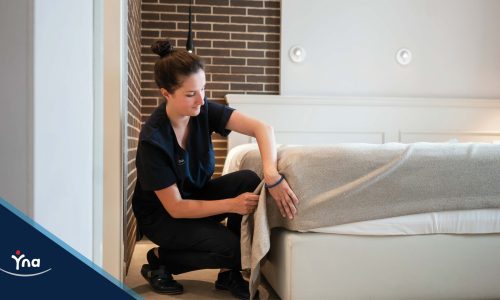You already know that teamwork makes the dream work. Everyone from doctors and nurses to lab techs and office staff make up the team. Working well together can make all the difference for patient care. As agency staff you may be unknown when commencing a shift in a new facility or a new ward. Sometimes you even encounter resistance to welcome you to the area. So, how do you go from strangers to a tight-knit team? Let’s dive in.
Building a great healthcare team starts by understanding and respecting everyone’s job. From the front desk receptionist to the top specialist, everyone plays a crucial role. Knowing each role and valuing everyone’s input creates a vibe of respect and friendship.
In a world as intricate as healthcare, clear communication is key. Misunderstandings can lead to errors that affect patient care. Regular team meetings, smooth shift handovers, and shared notes can keep everyone informed. But more than that, good communication builds trust, the bedrock of all strong relationships. If you are unsure of anything, please ask a colleague for assistance.
Team building activities might sound a bit old hat, but they do work. These activities help team members see each other as humans, not just colleagues. If you are invited to participate in any activity, accept! Whether it’s a casual lunch or a formal team-building opportunity, these non-work interactions help strengthen ties.
Workplace disputes can happen, even in healthcare. Handling conflicts promptly and professionally prevents them from spiralling out of control. An open, respectful conversation about the issue and a focus on solutions keeps working relationships healthy. Remember we are only a phone call away and you have an obligation to let YNA know of any disputes that may occur, even if you think they are unimportant.
Healthcare can be tough. Being there for each other on the hard days is key for team unity. Whether it’s lending an ear after a difficult shift or giving encouragement during stressful times, emotional support builds strong bonds. Your YNA team is always available for you to speak with.
Finally, promote a space where everyone can learn and grow together. Cross-training, mentorship, or group learning sessions can expand knowledge and strengthen team bonds. Remember to consult with your YNA Manager and keep abreast of any LMS modules that may assist you grow or even in person training opportunities.
In a nutshell, moving from strangers to a tight-knit team in healthcare means understanding each other’s roles, communicating well, participating in team-building activities, resolving conflicts proficiently, providing emotional support, and encouraging mutual growth. With these ingredients, agency staff can form solid, effective relationships that boost their work experience and patient care.





